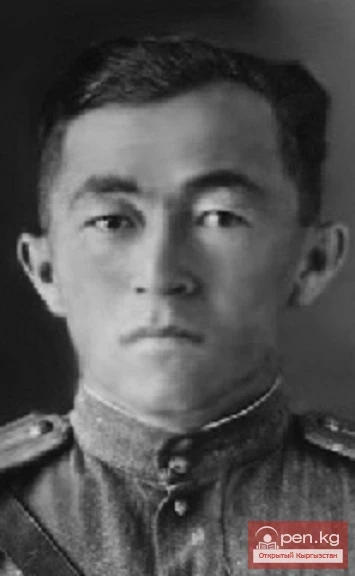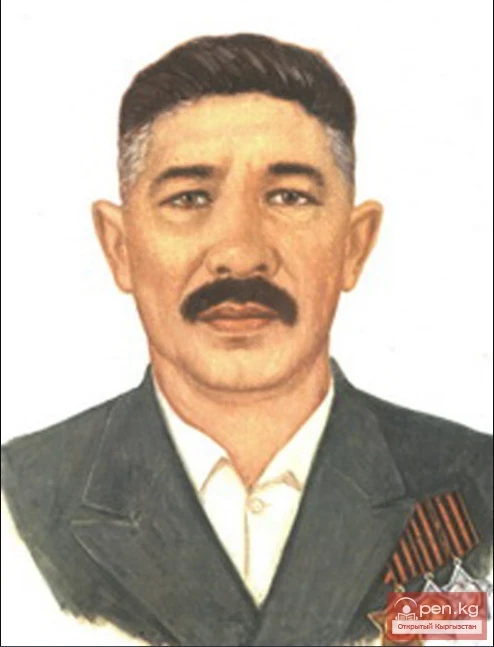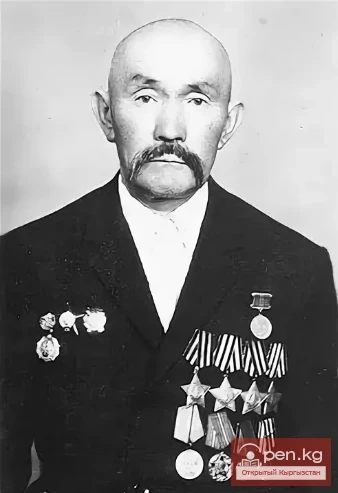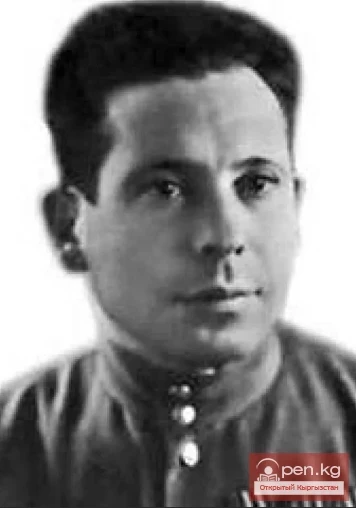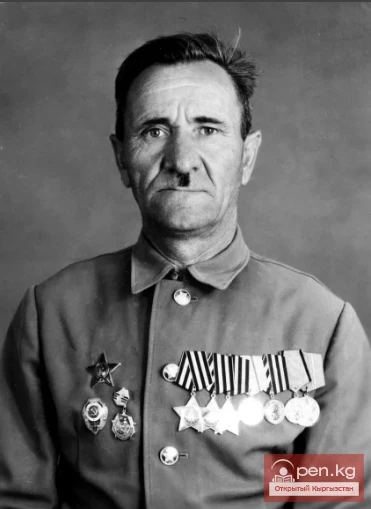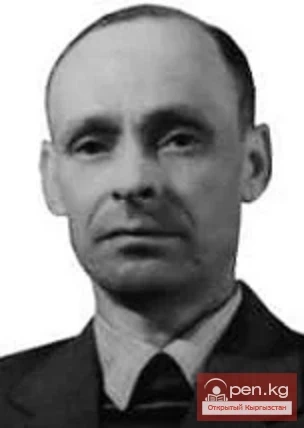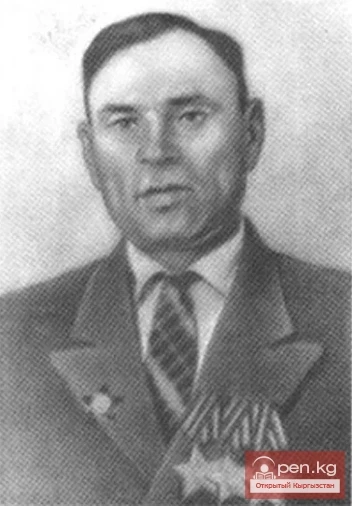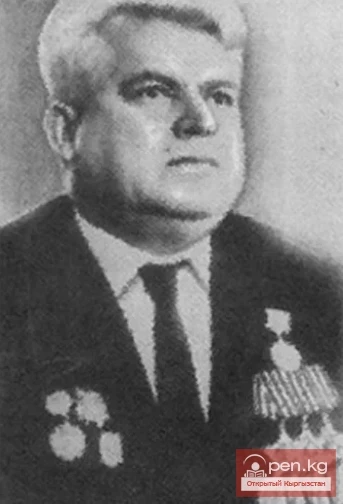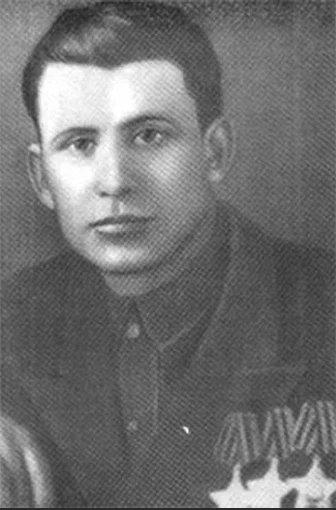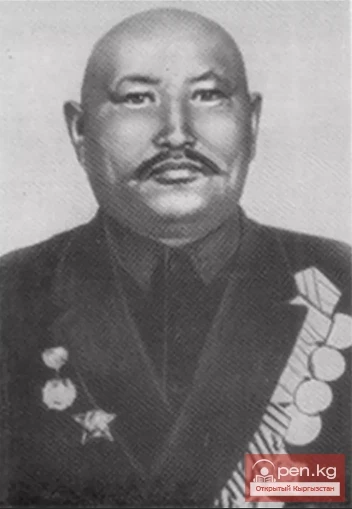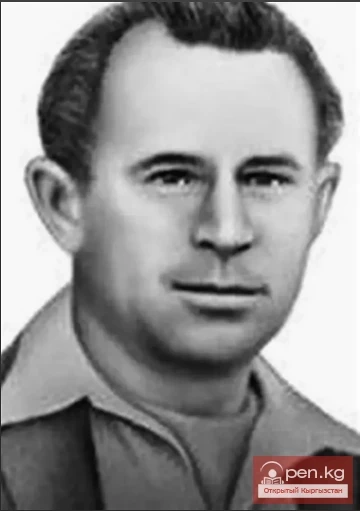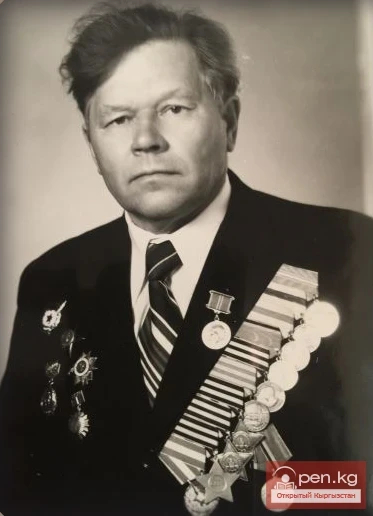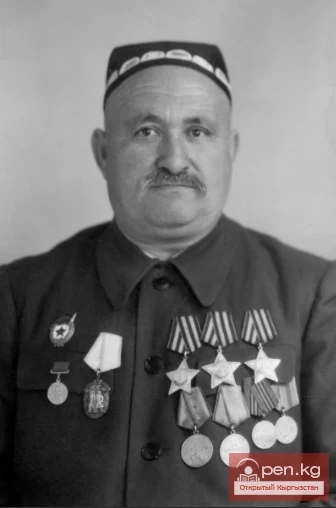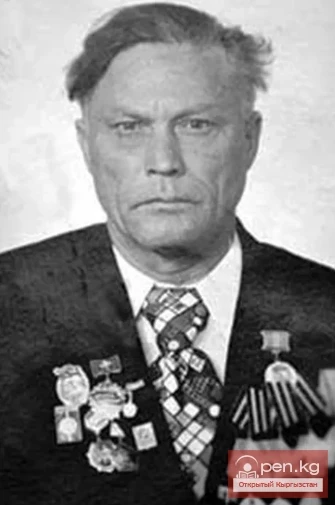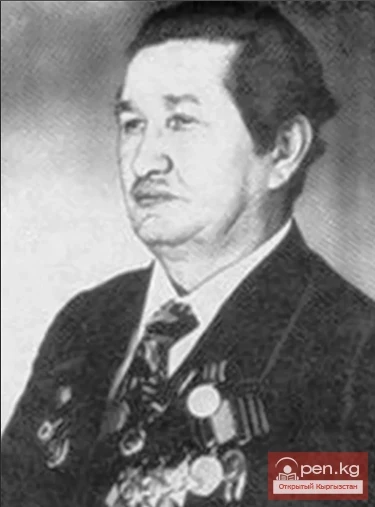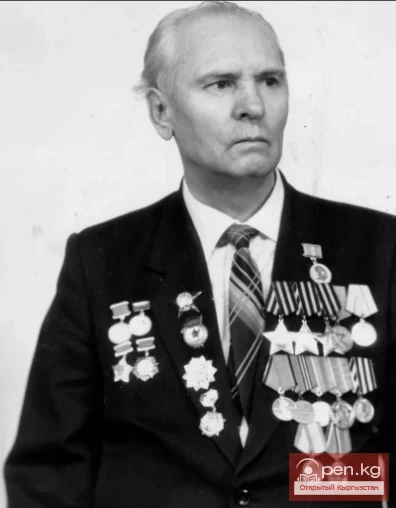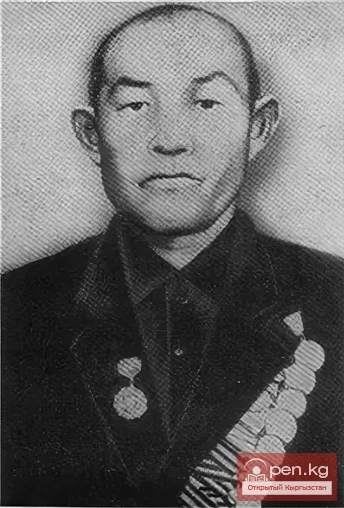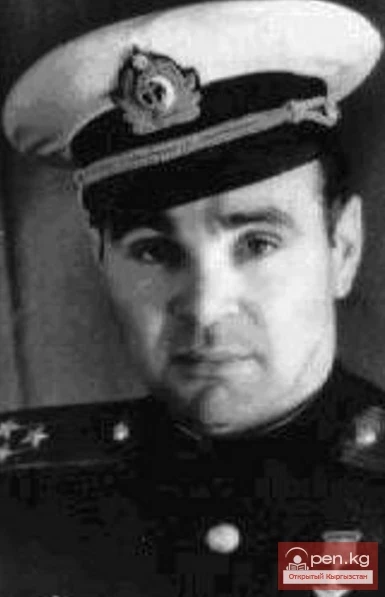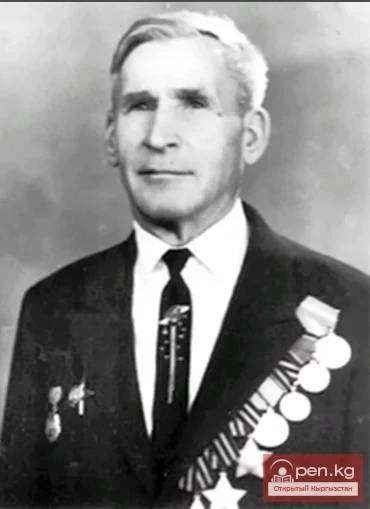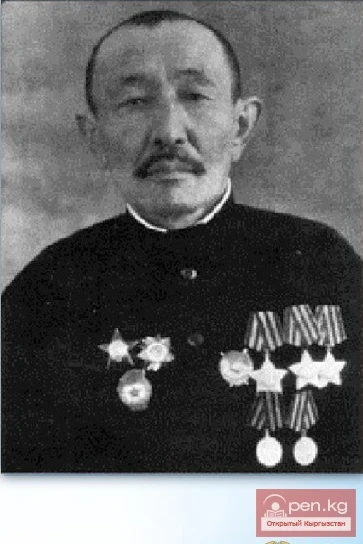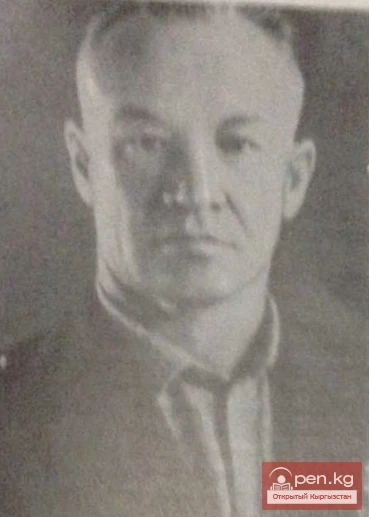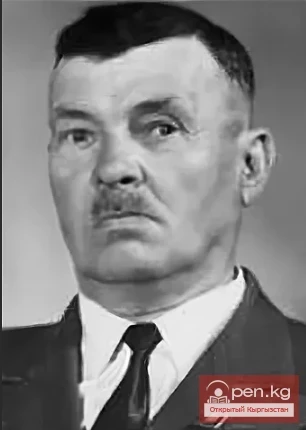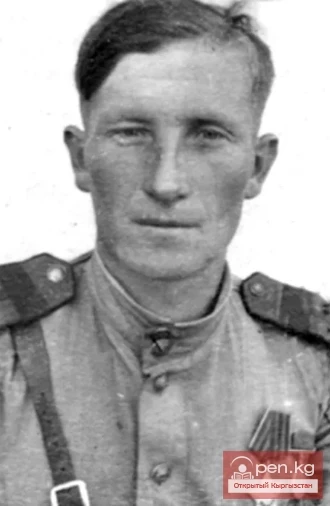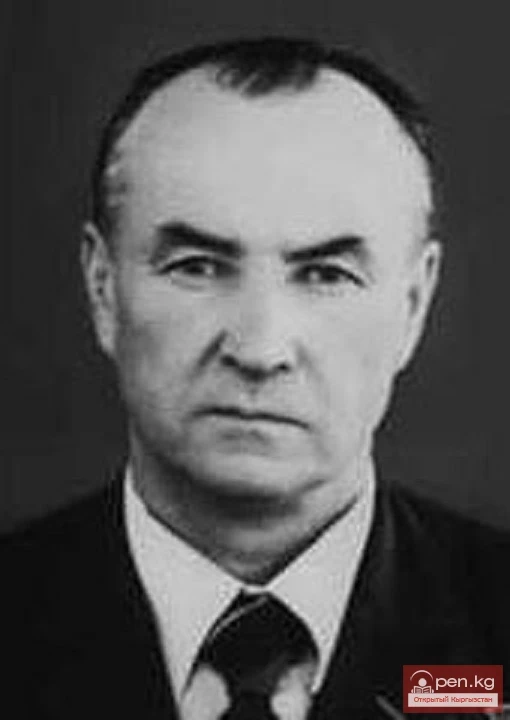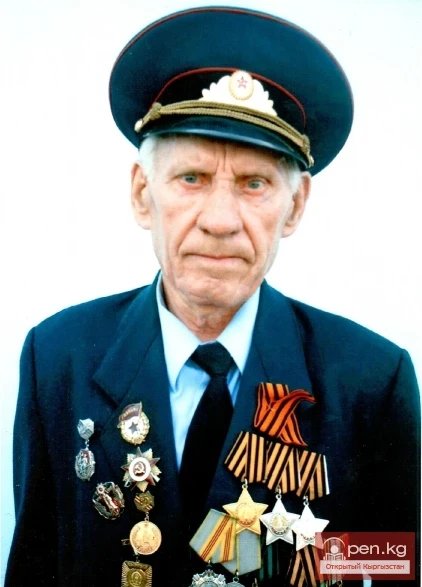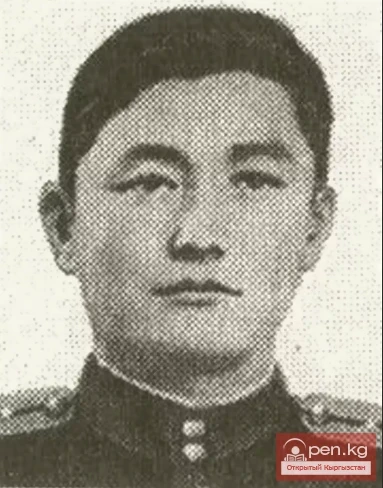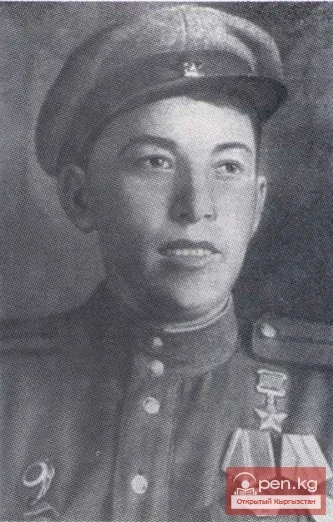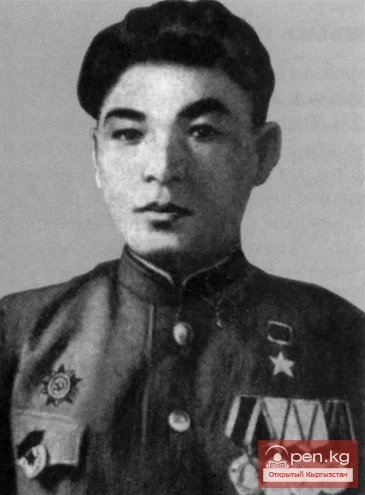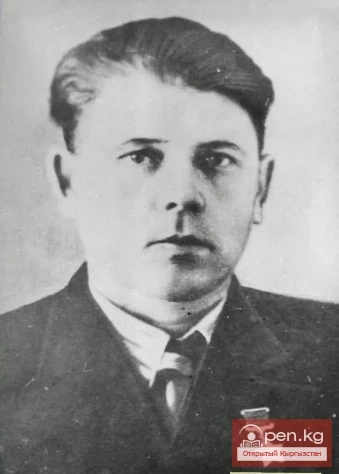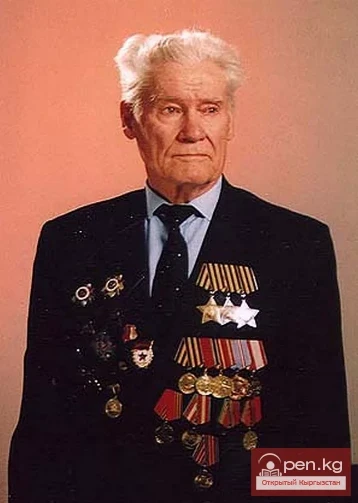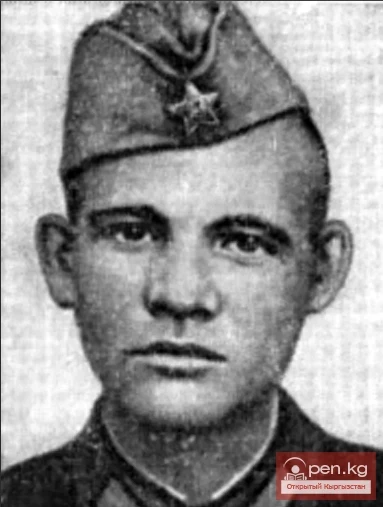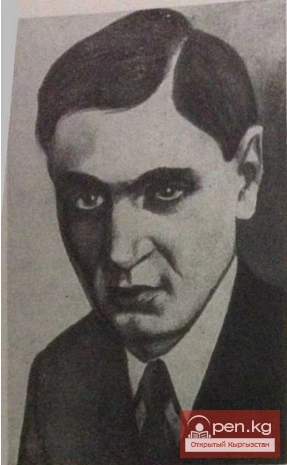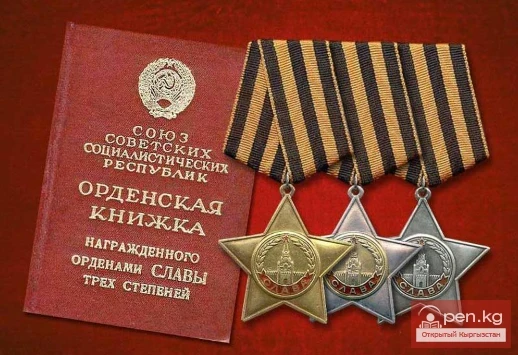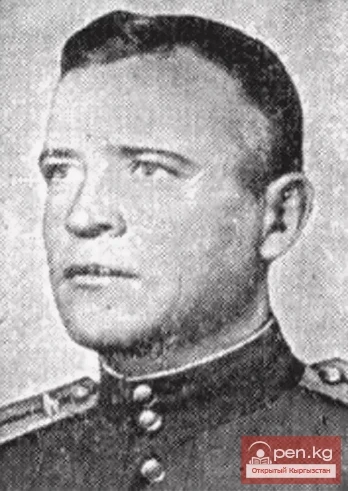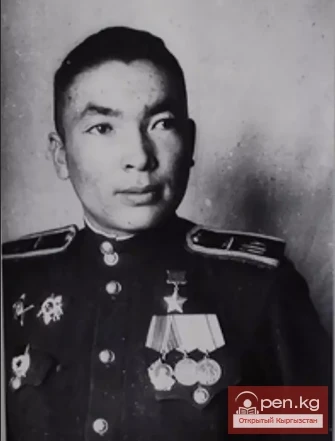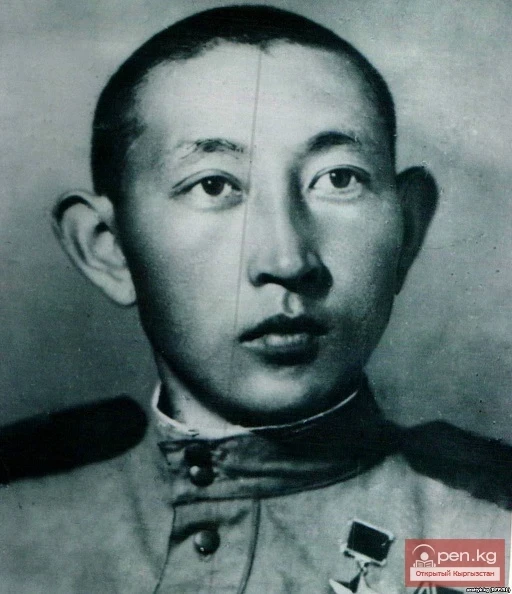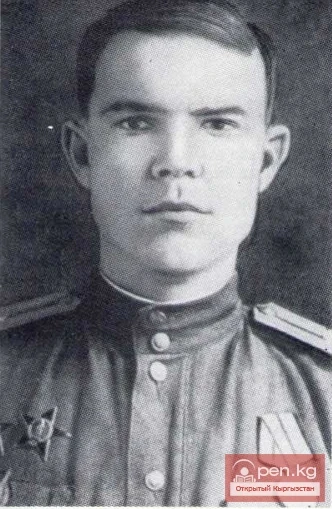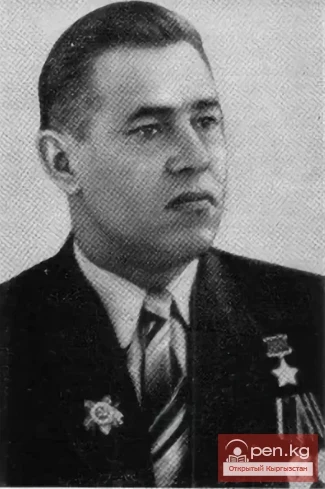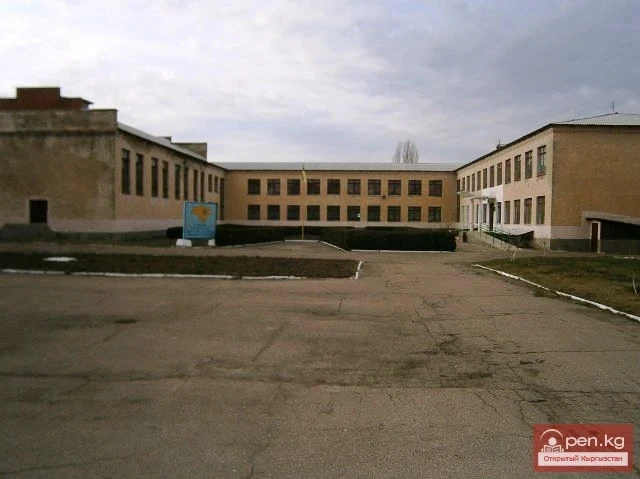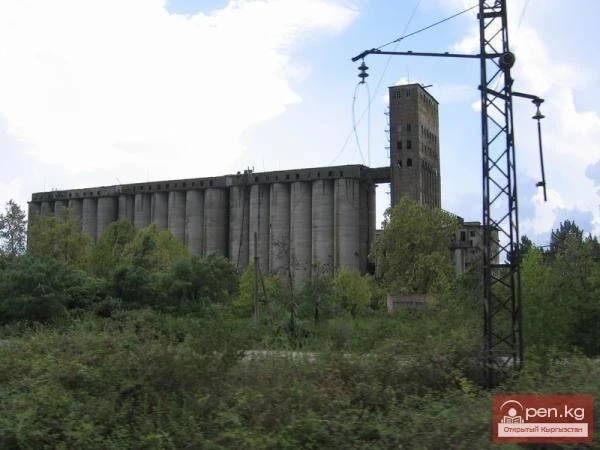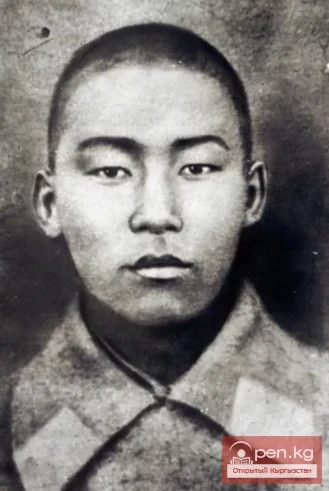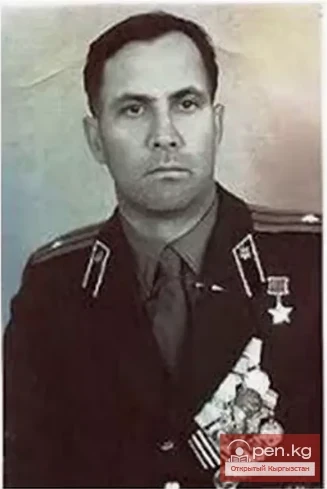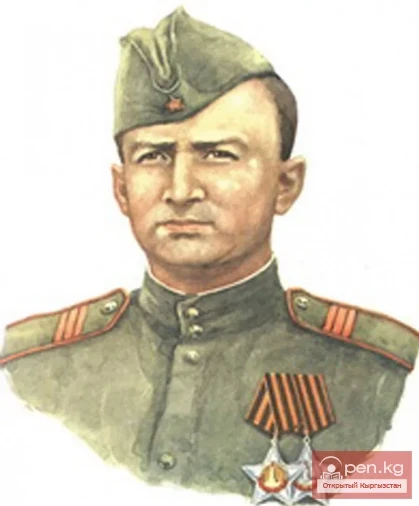
Aubakirov Mannaf (Mannaf) Aubakirovich
- commander of the artillery crew of the 375th separate anti-tank artillery division (312th rifle division, 69th army, 1st Belorussian front), senior sergeant.He was born on August 26, 1926, in the city of Zaisan, Zaisan district, East Kazakhstan region, in a peasant family. He was Tatar. A member of the VKP(b)CPSU since 1945. In 1939, he moved with his parents to Kyrgyzstan, to the village of Kochkorka in the modern Naryn region. He completed 7 grades there. He worked as a cinema technician apprentice and then as a cinema technician.
After receiving notification of his older brother's death, he altered the year on his birth certificate from 1926 to 1925 and managed to enlist in the Red Army.
In March 1943, he was mobilized by the Kochkorka district military enlistment office of the Tien Shan region of the Kyrgyz SSR. He participated in the battles of the Great Patriotic War starting in November 1943. At the front, he became an artilleryman and completed his entire combat path as part of the 375th separate anti-tank artillery division of the 312th rifle division. In the summer of 1944, as part of the division, he participated in the crossing of the Western Bug and Vistula rivers. He was awarded the medal "For Courage".
As a gun loader, junior sergeant Aubakirov was wounded in the leg on August 20, 1944, southwest of the city of Pulawy (Poland) during a battle, but continued to fire and, together with his crew, destroyed an enemy machine gun and an ammunition depot.
...The log raft stopped five meters from the shore, ran aground. Mannaf jumped into the water and waded further.
The crew watched as the water rose above their knees, then they spoke:
— We’ll get through, we’ll pass.
The sergeant asked:
— What’s the bottom like?
— Sand!
— We’ll get through!
They pushed the gun off the raft and rolled it to the shore.
Around them, mines were exploding. Water and sand were shooting up in columns, shrapnel was scattering like fountains, and the entire shore was rumbling. Infantry was already lying there, waiting for the destruction of enemy fire points.
Slipping, the artillerymen fell by the wheels of the gun and, taking the opportunity, dipped their sweaty faces into the cool Vistula.
Already on the shore, when the gun began firing at enemy positions, Mannaf felt something scratch his thigh. He touched the spot, saw blood, and looked at the others in surprise.
— What?—asked the sergeant.—Did it hit? Nothing — it will heal.
Mannaf calmed down. He was bandaged, they joked, and he continued to do what was expected of a loader: sending shell after shell into the breech.
During the day, they approached a village overgrown with willows. The fascists had taken cover in it, firing continuously and launching counterattacks with the support of tanks. Shells, mines, and bombs exploded everywhere. And only late in the evening did everything quiet down.
The Germans retreated behind the village into the hills overgrown with bushes.
— We’ve taken the dominating heights, — joked the sergeant, the commander of the gun.
— Now we’ll sit here, — replied the gunner seriously, an elderly man with bristly red mustaches.
He guessed right. From that day, long months of defending the Pulawy bridgehead stretched ahead.
But Mannaf did not find them boring. The bridgehead required expansion, fortification, and protection. In fierce battles, they had to bite into the enemy's defenses and gradually create the prerequisites for a future powerful strike. Artillery exchanges on the bridgehead were a frequent occurrence.
At the end of August, the division was firing at the enemy. Enemy artillery did not take long to respond. A hail of fire fell on the division's positions. Shrapnel rattled against the shield, barrel, and carriages, and the explosions of mines and shells thundered.
But the crew, where Mannaf was the loader, habitually did their job. While the battle was going on, he felt neither fatigue nor wounds. But when the anxious silence fell to the ground, a treacherous weakness passed through his body. He looked at himself — his pants and boots were covered in blood... And then, leaning against the breech, he slid to the ground.
For this battle, by the order of the commander of the 312th rifle division dated August 25, 1944, junior sergeant Aubakirov Mannaf Aubakirovich was awarded the Order of Glory 3rd class (No. 89964).
The gunner sergeant Aubakirov on January 16, 1945, in the area of the settlement Nova-Voliya (Poland) on the Pulawy bridgehead cleared the way for infantry units. Being wounded, he did not leave the battlefield and managed to suppress two machine gun positions and killed about fifteen enemy soldiers. He was wounded in the arm but remained in the ranks until the end of the battle.
By the order of the 69th army dated February 17, 1945, sergeant Aubakirov Mannaf Aubakirovich was awarded the Order of Glory 2nd class (No. 11226).
...Months passed. Hundreds of kilometers of Polish and German land lay behind. Only a little remained to Berlin. They needed to take the small town of Lebus, and two or three more such neat, cobbled ones, and then — Berlin.
Mannaf was already commanding a crew, his epaulettes bore the yellow stripe of a senior sergeant, and on his chest shone two Orders of Glory. He had noticeably matured, weathered in the spring wind, broadened in the shoulders, and his gait had changed — it became unhurried and important, and only his black eyes still sparkled youthfully, with a hidden mischief.
On April 17, 1945, the commander of the artillery crew, senior sergeant Aubakirov, in the battle for the city of Lebus (Germany), rolled the gun out for direct fire and shot at enemy tanks and infantry at close range. He destroyed the gun, eliminated four machine guns, destroyed an observation post, and incapacitated up to fifteen enemy soldiers and officers.
He was seriously wounded in the chest by a shrapnel. He continued to command the crew until he lost consciousness.
...The battle broke out in a spacious meadow southwest of Lebus. The fascists were doing everything to prevent the city from being encircled.
Mannaf's gun was firing at enemy tanks and infantry at close range, which were launching counterattacks, yet they did not allow the assaulting units to cross the meadow. Then Mannaf ordered the crew to move forward to cover the infantrymen. The gun found itself in an open place, like on a green billiard table. The entire battery moved up, followed by two neighboring batteries. Continuous fire at direct fire suppressed the machine gun positions. The infantry managed to cross the meadow and secured themselves on the outskirts of the town. Together with them, Mannaf's gun rolled into the street. The fascists appeared ahead. They opened fire on the outskirts.
— Aim at them! — commanded Mannaf.
Our infantry advanced further, and at that moment, shells flew in from somewhere. Mannaf staggered, pressed his hand to his chest, where a hot shrapnel had struck, but remained in place.
— Load! Fire! — he commanded, trying not to change his voice so that the crew would not know about his injury.
Enemy tanks entered the street. They were approaching. Behind them, a landing party was sneaking up.
— Fire at the lead tank...
His legs buckled. As he fell, Mannaf saw a window in the attic of the nearby house. A young woman looked at him in surprise, pressing her hands to her cheeks. He thought it was Ira. In the morning, he had written her a letter, congratulating her on the upcoming May Day holiday and asking her to send a photo.
"I need to write to mom too," he thought, losing consciousness.
The lead tank stopped "bare" without tracks. Others turned into alleys, into yards.
The assault infantry went on the attack.
And above Mannaf, a nurse was bustling around.
— His heart is still beating. Help carry him...
Mannaf was carried to shelter and bandaged.
The battery commander ran up. Not knowing what had happened to Mannaf, he thanked him for his initiative and cheerfully added:
— "Glory of the first degree" is yours!
— He is unconscious, — said the nurse.
— So what are you standing around for?! — shouted the commander. — To the field hospital — run!
The field hospital was located behind the very meadow that Mannaf's crew had crossed half an hour ago.
The doctors examined the wound, did what was necessary, and instructed the nurse:
— Keep an eye on him. When he comes to, call him.
Mannaf was alone in the room of an old brick house in the gardener's estate. The nurse adjusted the pillow and looked closely at his face. "How young he is..." she sighed.
In the distance, the battle rumbled, and from the right, from the main direction towards Berlin, a low rumble with the explosions of heavy bombs could be heard, which made the house shudder.
"But now it will soon be over," the nurse sighed again.
From the window, she could see more and more ambulance vehicles arriving. Soon, the room where Mannaf lay became cramped. The familiar smell of iodine filled the air, and muffled moans could be heard. The nurse, remembering the order, hardly left Mannaf's side, while he lay quietly, as if asleep.
In the evening, his friends and the commander of the division, Major Kolganov, came to him.
— How is he doing? — asked the major. The nurse nodded towards the pale face:
— He has been like this all the time...
— And what do the doctors say?
— Nothing...
— Well, okay. We won't disturb him. And when he wakes up, give him this, — the major handed the nurse a sheet of paper. — This is a copy of what went where it needed to go. Let him read it — it will help... His friends left gifts, a letter from Ira, and followed the major out.
"Who is he?" — the nurse wondered, looking at Mannaf, then remembered the copy and read: "Award Sheet". Further, twelve points of personal data were filled in, followed by a brief description of his personal combat feat: "In the battle on April 17, 1945, southwest of the city of Lebus (Germany), gun commander Comrade Aubakirov displayed examples of courage, perseverance, and fearlessness..." The nurse read to the end and returned her gaze to the beginning, where the year of birth was listed. "Lord, he is not even nineteen, and already a full knight!"
Senior sergeant Aubakirov died on April 19, 1945, in the hospital, without regaining consciousness.
By the decree of the Presidium of the Supreme Soviet of the USSR dated May 15, 1946, for courage, bravery, and heroism displayed in the struggle against the German fascist invaders, senior sergeant Aubakirov Mannaf Aubakirovich was posthumously awarded the Order of Glory 1st class.
He was buried in the area of the city of Frankfurt on the Oder (Germany).
He was awarded the Orders of Glory of three degrees and the medal "For Courage".
Kyrgyzstanis – Full Knights of the Order of Glory
